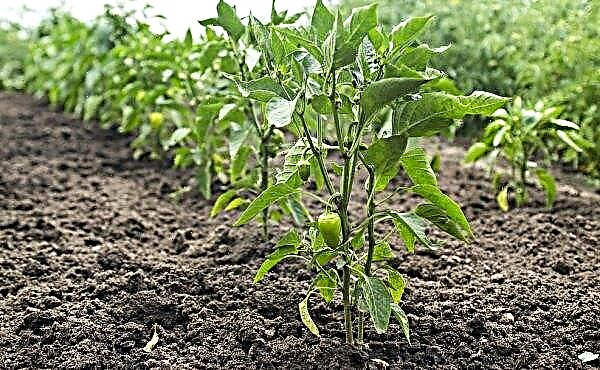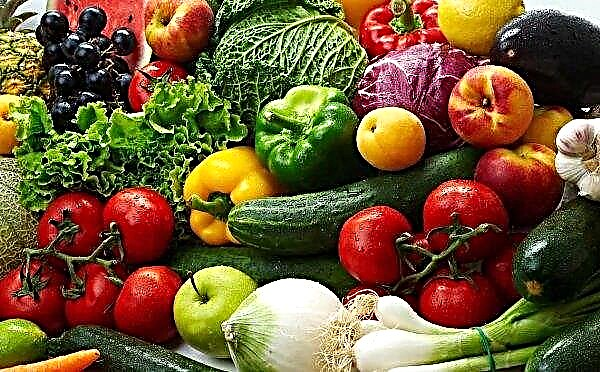Cabbage is one of the main vegetables that are present in the cuisine of our people. In addition to its juicy structure and pleasant taste, it has healing properties. Including a number of vitamins and minerals, this vegetable is able to satisfy the body's need for nutrients almost completely. Whether cabbage is useful to everyone and whether it can be eaten daily is considered below.
Useful properties of cabbage
Cabbage is a leader among diet foods. Having a low calorie content, the vegetable is considered a storehouse of vitamins, minerals and minerals. In its composition, you can find a number of useful substances.
Vitamins:
- AND (2 mcg) - is an antioxidant necessary for the normal functioning of the organs of vision, bone health, skin, hair and stable immunity;
- E (0.1 mg) - stabilizes the activity of the cardiovascular system, increases the rate of elimination of toxins and positively affects the condition of the skin;
- WITH (45 mg) - a type of antioxidant that strengthens the immune system, accelerates wound healing; normalizes metabolism and the removal of toxins from the body;
- group B (B1, B2, B6, B9) - is involved in the normalization of the nervous and cardiovascular systems, affects the digestive tract, improves the condition of the skin and hair.
In addition to vitamins, the described vegetable contains a whole set of microelements:
- Ca (calcium) - 300 mg;
- K (potassium) - 48 mg;
- S (sulfur) - 37 mg;
- P (phosphorus) - 31 mg;
- Cl (chlorine) - 37 mg;
- B (boron) - 200 mcg;
- Mo (molybdenum) - 10 mcg.
 These elements are participants in biochemical processes necessary for the activity of all systems of our body. In addition to the above, tartronic acid is present in the composition, which is known for its ability to stop the conversion of carbohydrates to fats, as well as vitamin U, which helps heal ulcers, wounds and erosions on the surface of mucous membranes.
These elements are participants in biochemical processes necessary for the activity of all systems of our body. In addition to the above, tartronic acid is present in the composition, which is known for its ability to stop the conversion of carbohydrates to fats, as well as vitamin U, which helps heal ulcers, wounds and erosions on the surface of mucous membranes.Important! To provide the body with the daily norm of vitamin C, you need to eat 200 g of raw cabbage or 100 g of sauerkraut.
The calorie content of the vegetable in question is small - 100 g of the product without heat treatment contains only 28 kcal, which corresponds to 146 kJ of energy. The amount of protein in the same volume is 7.2 g, fat - 3.7 g, carbohydrates - 18.8 g.
The composition of cabbage provides a positive effect on the following body systems:
- The immune system. According to studies, the systematic use of this vegetable increases the body's ability to fight colds, and also prevents the formation of cancerous tumors.
- Digestive system. Vitamin U, which is in the composition, has been successfully used in the treatment of gastritis and gastrointestinal ulcers.
- Nervous system. The product has a tonic and sedative property.
- Liver and kidney. Due to the high content of antioxidants, cabbage helps with gallstone disease.

Can I use cabbage every day?
Given all the healing properties of the product in question, it should be noted that cabbage is a necessary part of every person’s daily diet.
Did you know? According to legend, the cabbage was drops of sweat that rolled to the ground from the forehead of the sky god Jupiter.
Its systematic use helps to get rid of the following health problems:
- High blood cholesterol. Vitamin U, contained in the composition, prevents the bonding of the organic cholesterol compound with proteins, as well as its sedimentation on the walls of blood vessels.
- Excess weight. Thanks to tartronic acid, fats do not break down and do not form deposits.
- Intestinal slagging and systematic constipation. Dietary fiber of a vegetable acts as an irritant of the intestinal wall and activates its activity.
- Gastrointestinal ulcers, gastritis. The presence of vitamin U promotes the speedy healing of wounds and is widely used in the treatment of the stomach.
- Edema. Potassium, which is part of cabbage, helps to accelerate the process of removing excess fluid from the body.
- Joint pain. In traditional medicine recipes, sheets of this vegetable are often used as compresses that relieve pain and relieve inflammation.
 Provided there are no contraindications, as well as the exclusion of individual intolerance to this product, the daily fresh norm for an adult is from 100 to 150 g.
Provided there are no contraindications, as well as the exclusion of individual intolerance to this product, the daily fresh norm for an adult is from 100 to 150 g.What will happen to the human body if you eat cabbage every day?
If you carefully study all the beneficial properties of a vegetable, a logical question may arise: what will happen if you consume a lot of cabbage every day.
- The presence in the daily diet of this product will lead to the following consequences:
- Weight is reduced. Due to the high content of water and fiber, which positively affect the general condition of the body as a whole, as well as the high level of complex carbohydrates that activate metabolism, excess fat is burned. In addition, the vegetable provokes the withdrawal of excess water and, as a result, the removal of edema, and also stimulates the entire digestive system.
- The body's resistance to various viral diseases will increase. A high level of vitamin C, as well as the presence in the composition of a large number of acetic and lactic acids, which have mechanisms of antibacterial properties, help the immune system show greater resistance.
- Getting rid of bronchitis and asthma. Cabbage has expectorant and emollient properties, which are often used for coughs of various kinds.
- The general condition of the liver will improve. The composition of the vegetable relieves inflammation of the organ and accelerates the excretion of bile.
 Also, the vegetable is recommended to be used to reduce muscle pain, enhance brain activity, and in cosmetology - the whitening properties of juice are used in the fight against age spots and small wrinkles.
Also, the vegetable is recommended to be used to reduce muscle pain, enhance brain activity, and in cosmetology - the whitening properties of juice are used in the fight against age spots and small wrinkles.Did you know? The first sour cabbage was cooked in China, and it was soaked in wine.
Contraindications
- Despite the many beneficial properties, this vegetable has some contraindications associated with various diseases and characteristics of the body:
- Pancreatitis - refers to one of the types of inflammatory processes of the pancreas and has symptoms similar to ulcers. Often, patients, confusing the disease and not having previously visited the doctor, prescribe themselves treatment with cabbage juice. In this case, the condition worsens and the disease worsens. With this diagnosis, fresh cabbage, the fiber of which irritates the diseased organ, is strictly forbidden for consumption, and after heat treatment or in the pickled form, its portion should not exceed more than 100 g.
- IBS (irritable bowel syndrome) - the presence of fiber, calcium and protein negatively affects the general condition of the intestine.
- Children's age - the intestines of children of the first year of life are not able to cope with the digestion of cabbage in any form. The use of this product will lead to constipation and discomfort.
- Urolithiasis - with such diseases, a vegetable can cause an exacerbation.
- Thyroid diseases - goitrogens contained in cabbage increase the body's need for iodine.
 Due to the large number of vitamins, microelements and other useful substances that our body needs so much, cabbage has gained wide popularity among people who care about their health.
Due to the large number of vitamins, microelements and other useful substances that our body needs so much, cabbage has gained wide popularity among people who care about their health.Important! The recommended age for introducing fresh cabbage into the diet of children is 3 years. Also, doctors do not advise eating the vegetable in question after surgery - in the recovery process, you should choose lighter meals.
By including it in your daily diet, after a short period of time you can notice positive changes in the body and in the figure.












